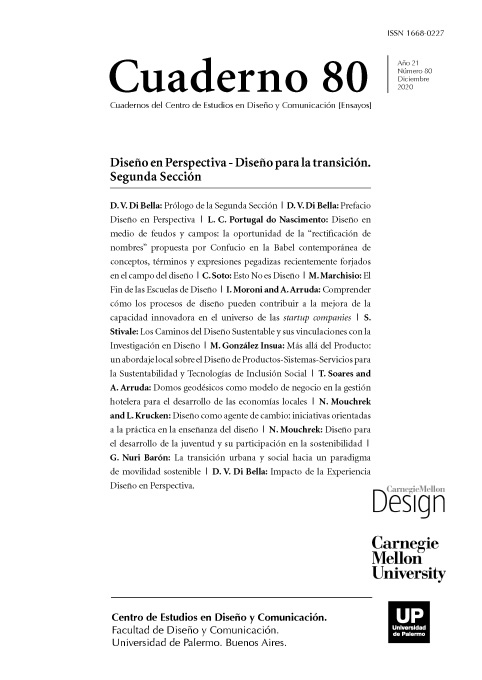Design amidst Feuds and Fields: The timeliness of the “rectification of names” proposed by Confucius in the contemporary Babel of newlyforged, catchy concepts, terms, and expressions in the field of design
Abstract
This essay examines whether contemporary design is undergoing a decline in its standards of professional and pedagogic quality, due to an identity crisis which has apparently been affecting the field since the late sixties. In light of Confucius’ “rectification of names” imperative, various linguistic and aesthetic implications associated with the alleged loss of design conceptual benchmarks of the very identity and definition of the design discipline and profession are explored. It analyses concrete situations in which narratives on design seemingly weaken its bonds with objective exterior reality, arguably leading to the deterioration of previously valued and nurtured patterns and canons of excellence in technical, aesthetic, linguistic, methodological, and, above all, moral terms in the discipline of design. Attention is also given to a relatively common trend displayed – often, but not always– by “neo design specialists” of erasing conceptual boundaries around the design field, in order to establish subdomains within the greater discipline of design. These tend to be marked by pleonastic and tautological, but nevertheless impressive terminology, such as “information design”, “interface design”, “interaction design”, “user-centered design”, “user-experience design”, “user-interface design”, “communication design”, “experimental design”, “authorial design”, “handicrafts design”, “modern design”, “contemporary design”, “emotional design”, “meta-design”, “sustainable design”, “design systems”, “design thinking” and more, which then subdivides the territory of design amongst various “neo-design specialists” by suggesting, in some instances, the possibility of isolating conceptual attributes (such as, respectively, “information”, “interface”, “interaction”, “user experience”, “user interface”, “design conceptual models and methodological approaches” and so on) from the very identity of the integral design discipline itself. In this context, Confucius’ message of the “rectification of names” may thus be perceived as an important and timely call.
References
Legge, J. (1991). Confucian analects: The great learning and The doctrine of the mean. EEUU:
Dover Publications. Pp. 263-264.
Los autores/as que publiquen en esta revista ceden los derechos de autor y de publicación a "Cuadernos del Centro de Estudios de Diseño y Comunicación", Aceptando el registro de su trabajo bajo una licencia de atribución de Creative Commons, que permite a terceros utilizar lo publicado siempre que de el crédito pertinente a los autores y a esta revista.


